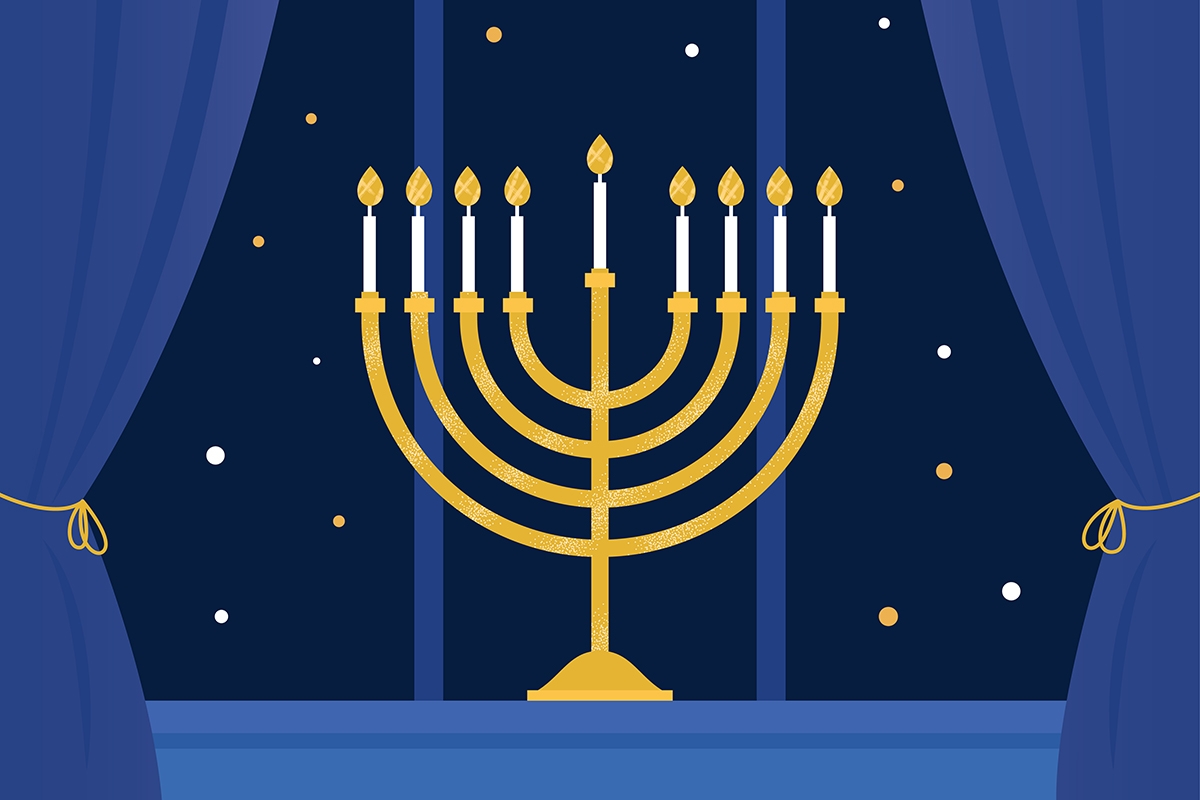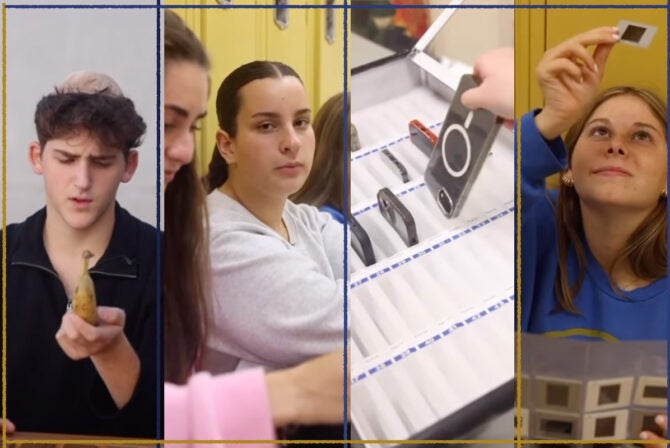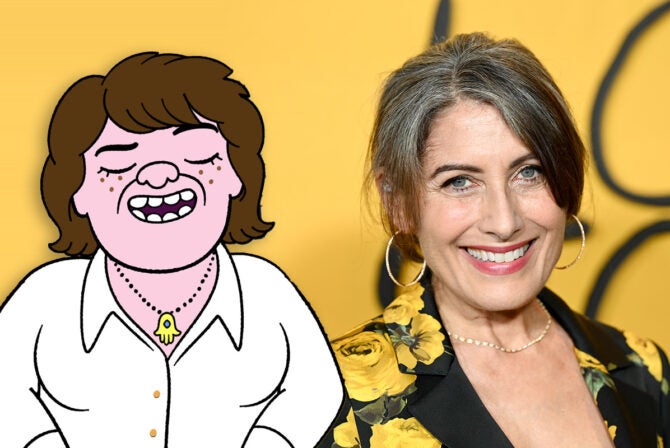As a rabbi and a mom, I’m always trying to figure out how to make Jewish rituals and traditions feel relevant to my children’s lives. This year, I felt I had to come up with a meaningful way for my kids to relate to the miracles of the Hanukkah story — especially as they spend day after day experiencing pandemic-related losses, both big and small.
My 10-month-old doesn’t know any differently, but for my 4-year-old, holiday celebrations will look very different this year. So, I began thinking about what values I could impart to her that felt true to the spirit of the holiday, as well as this all-around challenging time.
While Hanukkah is a minor holiday in the eyes of Judaism, the story it represents can teach us some core values about how to stand up in times of oppression — or a pandemic — and rise above the challenges we face. Here are eight values that I’m hoping to impart to my children this Hanukkah.
Leadership. Our shamash candle teaches us that we can be a leader, guiding others into renewed light. Just as Judah the Maccabee led his people to victory, we, too, can be an example of bravery and goodness in our own lives. In fact, leadership often means being the first to do something, or doing the right thing regardless of who follows.
Freedom. The Jews were forced to give up their religious freedoms because the Syrian King, Antiochus IV, wanted everyone to practice one religion — and the Maccabees fought for their right to practice Judaism. As it happens, freedom has become politicized during the Covid-19 pandemic, with mask wearing being seen as something aligned with Democratic states or individuals. I personally see freedom as one person’s rights not impinging on another’s — so, in this case, we are collectively responsible for caring for our community members and not impinging on their health or lives. It may be hard to stay home, or to wear masks every time we step outside, but our future freedom depends on it.
Hope. The Hanukkah story tells how the Maccabees were greatly outnumbered by King Antiochus’s army. And yet, the Maccabees had great spirit; they never lost sight of their goals; and, ultimately, they were successful in defeating their enemies. Let us hope together to be able to celebrate future joyous occasions.
Light: This one may be a bit obvious, but increasing light in a dark time can enhance our joy and happiness. With each passing night of Hanukkah, we add a candle to the menorah, thereby boosting the amount of light it gives off. After living through this pandemic for nine months, we surely need to bring more light into our lives!
Community. One of the ways we celebrate Hanukkah is by putting our menorah in the window so that others can see the flickering lights of the candles. This action is symbolic of our freedom to practice our religion. But that’s not all: It’s also about bringing ourselves into community with Jews around the world who are doing the same.
Giving. While Hanukkah originated as a commemoration of a historic battle and a subsequent miracle for the Jewish people, it has been incorporated into the season of giving. In these dark times, “giving” means so much more than presents — we can also give of our time and energy, as well as provide financial support. So many individuals, families, organizations, and businesses are struggling during these challenging times. Hanukkah is an ideal time to think of the people and places that have made a difference in our lives, and show our support in whatever ways can.
Resilience. We celebrate Hanukkah for eight nights because legend tells us that the amount of oil in the reclaimed Temple was only enough to burn the menorah for one night — but it miraculously lasted for eight nights. This year, when we needed to power through the myriad challenges of 2020, we learned we could do hard things. It’s not always easy, but we have grown more resilient and adapted as a result! May we rededicate ourselves to whatever we personally need to overcome this year.
Belief. Hanukkah is all about miracles. As the letters on the dreidel indicate: “Nes gadol ha’ya sham,” which means, “a great miracle happened there.” The word miracle literally means a great event that exceeds all natural and human powers happened, possibly caused by divine intervention. But one has to believe a miracle can happen in order for it to take place; in other words, a miracle is one part faith and one part divinity. Certainly this unprecedented time calls for miracles, so let’s light our Hanukkah candles and direct our hope towards the miracles that will unite us once again.
Header image by Author/ iStock/ Getty Images Plus








